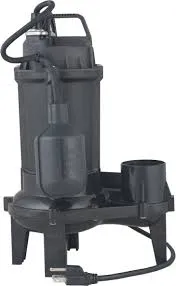Turkish
- Afrikaans
- Albanian
- Amharic
- Arabic
- Armenian
- Azerbaijani
- Basque
- Belarusian
- Bengali
- Bosnian
- Bulgarian
- Catalan
- Cebuano
- Corsican
- Croatian
- Czech
- Danish
- Dutch
- English
- Esperanto
- Estonian
- Finnish
- French
- Frisian
- Galician
- Georgian
- German
- Greek
- Gujarati
- Haitian Creole
- hausa
- hawaiian
- Hebrew
- Hindi
- Miao
- Hungarian
- Icelandic
- igbo
- Indonesian
- irish
- Italian
- Japanese
- Javanese
- Kannada
- kazakh
- Khmer
- Rwandese
- Korean
- Kurdish
- Kyrgyz
- Lao
- Latin
- Latvian
- Lithuanian
- Luxembourgish
- Macedonian
- Malgashi
- Malay
- Malayalam
- Maltese
- Maori
- Marathi
- Mongolian
- Myanmar
- Nepali
- Norwegian
- Norwegian
- Occitan
- Pashto
- Persian
- Polish
- Portuguese
- Punjabi
- Romanian
- Russian
- Samoan
- Scottish Gaelic
- Serbian
- Sesotho
- Shona
- Sindhi
- Sinhala
- Slovak
- Slovenian
- Somali
- Spanish
- Sundanese
- Swahili
- Swedish
- Tagalog
- Tajik
- Tamil
- Tatar
- Telugu
- Thai
- Turkish
- Turkmen
- Ukrainian
- Urdu
- Uighur
- Uzbek
- Vietnamese
- Welsh
- Bantu
- Yiddish
- Yoruba
- Zulu
Telephone: +86 13120555503
Email: frank@cypump.com
Ara . 12, 2024 10:48 Back to list
pumps and pipeline services
The Importance of Pumps and Pipeline Services in Modern Industry
Pumps and pipeline services play a crucial role in the global economy, directly impacting various sectors such as oil and gas, water treatment, agriculture, and chemical processing. These services ensure efficient transport of fluids, which is essential for maintaining productivity and reliability in operations. As industries continue to advance, the importance of state-of-the-art pumping systems and pipeline infrastructure becomes increasingly evident.
At the core of many industrial processes are pumps, which are devices used to move fluids by mechanical action. They are found in applications ranging from water distribution systems to complex chemical processing plants. The types of pumps utilized can vary significantly based on the specific requirements of a task. Common types include centrifugal pumps, positive displacement pumps, and submersible pumps. Each type has its advantages and applications, but they all serve the same primary function efficiently moving liquids to where they are needed.
Pipeline services complement pump systems by providing the necessary infrastructure to transport fluids over long distances. Pipelines are designed to carry a variety of fluids, including water, oil, gas, and chemicals. The design, construction, and maintenance of pipelines are critical for ensuring safe and efficient fluid transport. Modern pipeline services often involve advanced technologies such as smart sensors and automation systems, which enhance operational efficiency and reduce the risk of leaks and failures.
pumps and pipeline services

One of the most significant advantages of having reliable pumps and pipeline services is the ability to enhance operational efficiency. Efficient fluid transport minimizes downtime and reduces energy consumption, which can lead to considerable cost savings. Additionally, properly maintained pumps and pipelines reduce the risk of leaks and spills, promoting environmental sustainability and regulatory compliance. Companies that prioritize these services can enjoy a competitive advantage by ensuring their operations are both efficient and environmentally responsible.
In the oil and gas industry, pumps and pipeline services are especially vital. These sectors rely heavily on complex pumping systems to move crude oil and natural gas from extraction points to refineries and distribution centers. The strategic placement and maintenance of pipelines can significantly impact the overall efficiency of the supply chain. Innovations such as real-time monitoring and predictive maintenance not only enhance safety but also extend the life of the infrastructure, reducing the frequency of costly repairs and replacements.
Water treatment facilities also depend on reliable pumps and pipelines to ensure the delivery of clean water to communities. These systems must be meticulously designed to withstand various pressures and flows, ensuring that they can deliver safe drinking water while minimizing waste. Regular maintenance and prompt service interventions are essential for preventing disruptions, which can have serious consequences for public health.
In conclusion, pumps and pipeline services are essential components of modern industrial infrastructure. Their efficient operation is fundamental to the success of various sectors, from oil and gas to water treatment. As technology continues to advance, the integration of digital solutions, such as IoT and automation, holds great promise for enhancing the reliability and efficiency of these systems. Industries that invest in robust pump and pipeline services position themselves to thrive in an ever-evolving market, ensuring safe, effective, and environmentally friendly operations. Ultimately, the future of industrial fluid transport will rely on the continued evolution and improvement of pumps and pipelines, paving the way for a more sustainable and efficient world.
-
High-Efficiency Axial Flow Pump for Water Transfer & Irrigation
NewsJul.23,2025
-
High-Efficiency Horizontal Split Case Pump for Industrial Use
NewsJul.22,2025
-
Reliable Septic Tank Pumps | Durable & Clog-Resistant
NewsJul.22,2025
-
Here is the optimized TDK set for "axial flow pump": ``` Axial Flow Pump: High-Efficiency & Reliable Water Transfer Solutions
NewsJul.21,2025
-
DT Desulphurization FGD Pumps - Corrosion-Resistant & High-Efficiency
NewsJul.21,2025
-
High-Efficiency Submersible Effluent Pump for Sewage & Wastewater Solutions
NewsJul.08,2025










